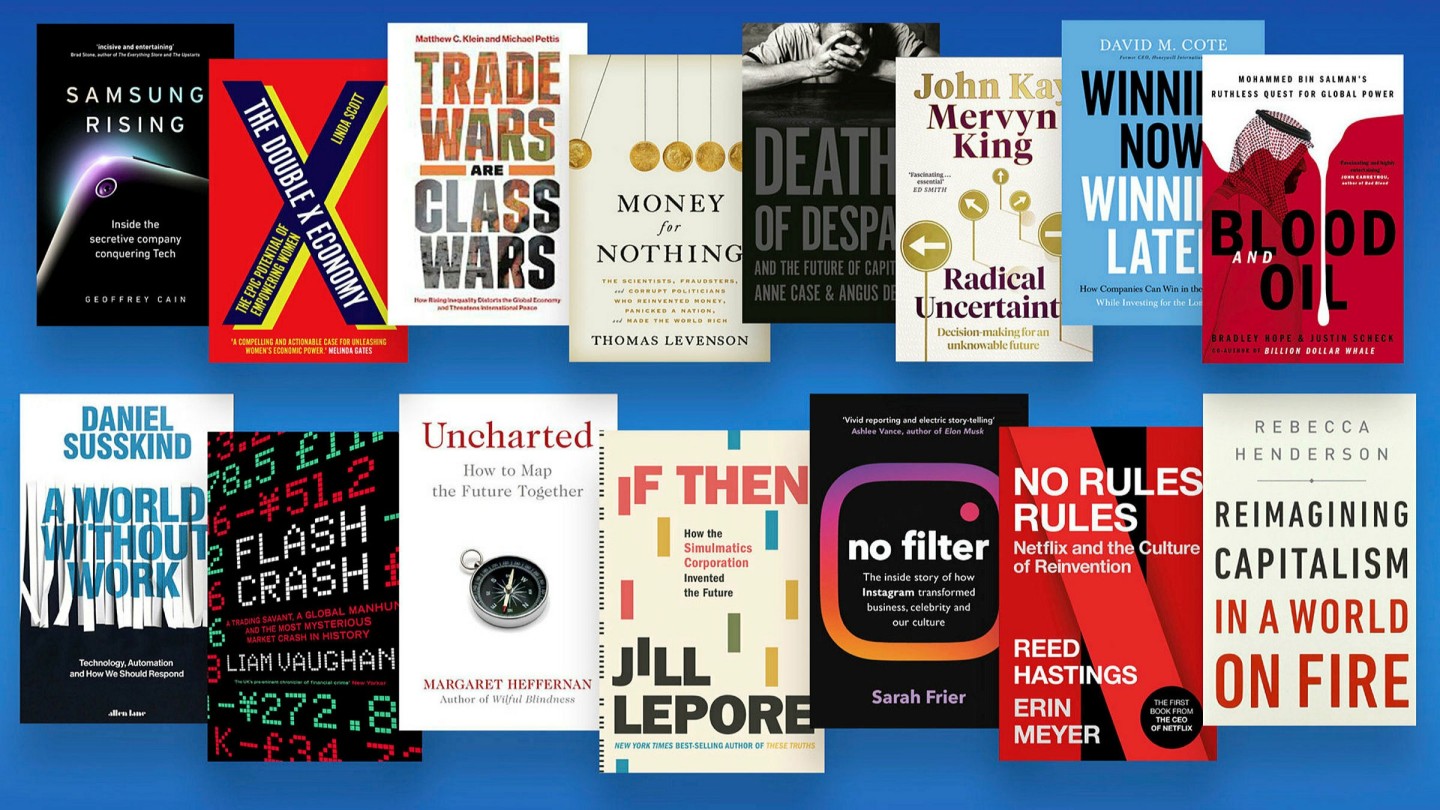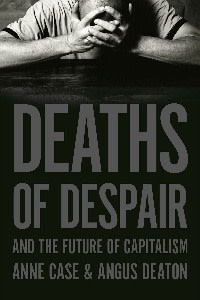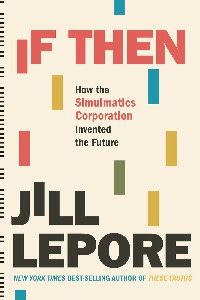Business Book of the Year Award 2020 — the longlist

Roula Khalaf, Editor of the FT, selects her favourite stories in this weekly newsletter.
One benchmark for the Financial Times and McKinsey Business Book of the Year is that its insights and influence should be “likely to stand the test of time”. That is hard enough to predict in a normal year. In 2020, the task will be particularly taxing.
From more than 400 entries, Financial Times journalists have helped select a longlist of 15 titles, from which the panel of judges will winnow a shortlist of six, to be announced on September 23.
Books specifically about the impact of coronavirus are likely to land only in time for the 2021 prize. But there are a few in this year’s selection that should help readers prepare for a Covid-shaped world.
Among them are Margaret Heffernan’s Uncharted and Mervyn King and John Kay’s Radical Uncertainty, both of which take issue with the spurious precision of current forecasting methods.
Heffernan — who was shortlisted for her book Wilful Blindness in 2011 — underlines the need to be prepared, with prescient reference to, among many varied examples, the scientists who were readying themselves for a pandemic. Kay and King focus on economists’ overdependence on probability analysis and our dangerous craving for certainty in the face of an unknowable future.
Rebecca Henderson’s Reimagining Capitalism addresses the climate emergency, but her solutions — notably the need for a collaborative compact between government, society and purpose-led businesses — look relevant as economies emerge from the acute phase of the Covid-19 crisis.
A gloomier analysis of the future of capitalism, with acute relevance for the fate of President Donald Trump in this year’s elections, comes from Anne Case and Angus Deaton. Their book Deaths of Despair is based on the authors’ findings about the rising mortality rate of white non-college-educated Americans, hit by death by suicide, accidental drug overdose or alcoholic liver disease. They blame a system that is not so much unequal as unfair.

Equally timely is Matthew Klein and Michael Pettis’s Trade Wars are Class Wars. They analyse the history of world trade, and the evolution of the economies of China, Germany and the US, mapping the path to ballooning debt, frequent financial crises, and global imbalances, not to mention the human crisis described in Deaths of Despair.
Intertwined themes of corporate culture, management and leadership are picked up in the business books at the heart of the longlist, two of them written by business leaders.
Reed Hastings, founder of Netflix, and Erin Meyer, an academic specialising in culture, collaborated on the forthcoming No Rules Rules. It analyses the radical culture that helped launch and sustain Netflix as it expanded from scrappy start-up into the video streaming service that many have turned to for entertainment during lockdown.
David Cote, former chief executive of Honeywell, presents a grittier picture of the tests corporate leaders face in his Winning Now, Winning Later. In an intensely practical management manual he tackles the difficult paradox that all chief executives face: how to win in the short term but still invest for a sustainable long-term future.

Against these stories from insiders are set a trio of longlisted tales of technology companies, of which the most unexpected may be academic Jill Lepore’s If Then, due to be published in September. It is a hefty history of the Simulmatics Corporation, founded in 1959, whose legacy can be detected today in the work of companies such as Google, Amazon and Facebook. Previewing the book as part of the longlist selection process, an FT colleague described it as “a beautifully written and intellectually rigorous account of the origins of the science of predictive analytics and behavioural data science in the cold war era”.
That legacy is analysed in part in Sarah Frier’s book No Filter, about the extraordinary culture clash that played out after Facebook bought its rival picture-based social networking site Instagram in 2012. “As with most families, there was drama,” Frier writes in her dissection of the deteriorating relationship between Facebook founder Mark Zuckerberg and Instagram’s architect Kevin Systrom, who left with his co-founder in 2018.
Lest readers come to believe that the US west coast is the only locus of technological innovation — and corporate dysfunction — in the world, Geoffrey Cain takes us to South Korea in Samsung Rising. His portrait opens a window on to the anarchic development and extraordinary innovative drive of Apple’s principal smartphone rival — and the dynasty behind it.
Equally eye-opening is Flash Crash, Liam Vaughan’s account of the saga of Navinder Singh Sarao, the maths prodigy who managed to crash US stock markets in 2010, while trading from his parents’ home in the London suburbs. It is in part a cautionary tale of the fragilities of the financial system.

One keenly awaited title on the longlist is Blood and Oil by Bradley Hope (co-author of Billion Dollar Whale, longlisted in 2018) and Justin Scheck, out next month. Their book is a gossipy account of the rise to power of Saudi Arabia’s Crown Prince Mohammed bin Salman, offering detailed insights into his ascent and his business, family and political relationships.
The uncertain future will send some readers back to history, represented in this year’s longlist by Thomas Levenson’s Money for Nothing. It tells the story of the invention of financial engineering in the 17th century, culminating in the South Sea Bubble, with lessons for today’s financial system. “What’s novel”, our FT previewer remarked, “is the way he presents the South Sea Company not as a period of madness and a disaster but a learning process that in the long run created something very valuable.”
Finally, two books that focus on the potential for change. In A World Without Work, Daniel Susskind addresses the future of work — a topic that more than half of those polled at a recent FT webinar on business books said they most wanted to read about. His underlying premise is that machines will make human work obsolete, requiring radical solutions that only the state can execute.
Linda Scott’s book The Double X Economy is based on her academic work examining the systematic exclusion of women from the economic system. From this gloomy analysis, though, she draws an optimistic conclusion: properly empowered and employed, women have the potential to transform the global economy for the better.
The winner of the £30,000 prize will be the book that offers the “most compelling and enjoyable insight” into business issues. The shortlisted titles will each receive £10,000. The winner of the award, and the winner of the £15,000 Bracken Bower Prize (for business book proposals by an author aged under 35) will be announced on December 1. Read more about the award at www.ft.com/bookaward.
Additional research by Amy O’Brien

Comments